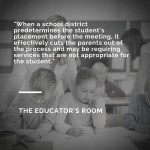As parents, we answer a million questions a day, sometimes more. Questions like: Why? Can I have…? Where are my…? But as a parent do you ever think of turning the tables? Sometimes the best answer to a question is another question. Asking your child questions will increase their self-awareness and encourage them to be problem-solvers in their world. It will often take longer, and yes, it is sometimes a difficult process to stick with when you have dance class in 5 minutes and cannot locate the ballet shoes, but in the long run it’s about teaching your children to be independent.
If you are reading this, you probably have a school age child. There are many questions that you are asked in a day, so how do you figure out which ones to answer and which ones to reflect back to the child? Asking questions is part of learning, but there are questions children ask that they could answer themselves. Here are three things to think about:
1. Does the child already know the answer to the question?
2. Have you already provided an answer for the question?
3. Can the child find the answer or figure out the answer by themselves?
If the answer to any of these questions is “Yes!” then you do not need to answer the question. Turn it back around and repeat the question or rephrase the question. “Mom, where are we going?” asks Kay. “Where are we going?” asks Mom. “Mommy, what does W I L L spell?” asks Kay. “Make the sounds, what does W I L L, W-Ill spell?” asks Mommy. Providing your child with the opportunity to problem solve shows them you are confident in them and teaches them they are problem solvers.
If your child does not seem to have an answer or struggles to find the answer, then guide them. Ask questions that will move their thinking towards the answer. Another strategy that is helpful is to break the question down into manageable parts. Starting with simple questions will allow your child to practice their problem solving and lead to more complex thinking and problem solving as they get older. You can also break questions down and restate them in part for older children. “Why do I have to clean my room?” asks teenage boy. “What will happen when your room is clean? How does this help you get ready in the morning? How does this help you have the things you need for school?” counters his Mom.
In the beginning it may take a while for each of you to get used to moving away from the quick fix. It is simpler and easier to answer questions, even when we are asked a million a day. If you have younger children, toddler or infant age, start now. Ask them questions and then provide the answer. When they ask a question, restate the question before you answer it. This will model for them the problem solving process. As they get older follow the same rules as above:
1. Does the child already know the answer to the question?
2. Have you already provided an answer for the question?
3. Can the child find the answer or figure out the answer by themself?
If the answer is yes to any of these then let the child develop their problem solving by answering their own questions.
Does this mean every question should now be reflected back onto the child? No, your role as a parent is so important and it is your responsibility to share information and teach your children as well. So, what does not count? When should you step in? What questions SHOULD be answered? Here are a few things to think about:
1. Is this a big life question?
2. Does it involve morals or judgment?
3. Is this an opinion question?
4. Is the child seeking your advice?
5. Is the child trying to start a conversation?
If the answer to these questions is yes then your child needs you to listen and help. These instances they want your conversation, opinion or advise. Take this opportunity to engage in conversation and enjoy the moments of parenting. But for the simple things, the where are my shoes problems, and the why do I have to help with chores? Reflect those questions back and take pride in knowing you are helping your child develop problem solving skills that will help them throughout life.




